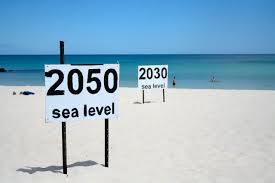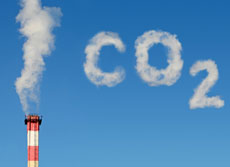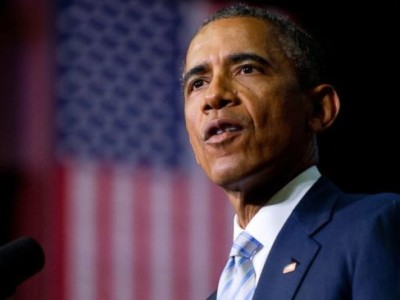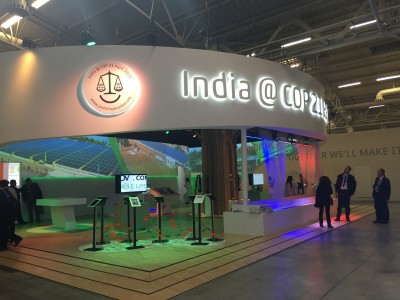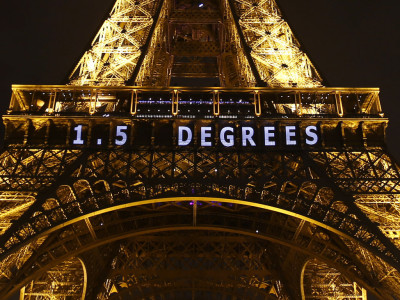Climate Change
A Sea Change in Climate Politics
Something strange has happened in Florida: Rising seas have changed GOP views.
There was a surprise question about climate change at the last Republican debate. What was surprising wasn’t the question itself. Instead, it was the source of the question: Tomás Regalado, the Republican mayor of Miami. It turns out that this wasn’t a fluke. Regalado and the Republican mayor of Miami Beach have spoken out in an …
Continue reading “A Sea Change in Climate Politics”
CONTINUE READINGCreating An Exit Strategy for Our Use of Natural Gas
To meet long-term greenhouse gas reduction goals, all fossil fuels have to go, even natural gas.
Coal is the climate’s Public Enemy #1. The use of natural gas has helped to ensure that the coal problem has not become even worse. Without natural gas, we would use more coal for space heating and for many more industrial processes than is currently the practice. Without natural gas, our reliance on coal for …
Continue reading “Creating An Exit Strategy for Our Use of Natural Gas”
CONTINUE READINGThe Supreme Court Stay and the Dog That Didn’t Bark
EPA’s Requirements for New Plants Remain Intact
The Supreme Court’s stay of the Clean Power Plan was a surprise to almost all observers, maybe even to the lawyers requesting the stay. We can only speculate on what the five majority Justices had in mind, since there was no written opinion. The practical impact of the decision is also unclear. E&E news reports that the …
Continue reading “The Supreme Court Stay and the Dog That Didn’t Bark”
CONTINUE READINGWant an Economy-Wide Cap on U.S. Climate Emissions? Consider This Corner of the Clean Air Act
New report on Section 115 of the Act suggests an interesting post-Paris approach
A largely-untapped provision of the Clean Air Act authorizes the U.S. Environmental Protection Agency to develop and implement an economy-wide, market-based program to reduce domestic greenhouse gas emissions and achieve the Obama Administration’s Paris Agreement pledge, according to a report released today by several coordinating law school centers, including the Emmett Institute at UCLA. See …
CONTINUE READINGClimate Change, Energy, and the State of the Union
Quite a focus on climate change, this time around.
“Look, if anybody still wants to dispute the science around climate change, have at it. You’ll be pretty lonely, because you’ll be debating our military, most of America’s business leaders, the majority of the American people, almost the entire scientific community, and 200 nations around the world who agree it’s a problem and intend to …
Continue reading “Climate Change, Energy, and the State of the Union”
CONTINUE READINGStudent Guest Blogger Terra Laughton: Perspectives on COP21
Terra Laughton, UCLA School of Law JD class of 2017, shares her perspective on attending the Paris climate negotiations
I am a second-year student at UCLA School of Law. I recently returned from two weeks in Paris attending COP21. My classmates and I had already boarded our plane at Charles De Gaulle when the Paris Agreement was officially adopted—we learned of the news upon landing in Los Angeles. While it would have been exhilarating …
Continue reading “Student Guest Blogger Terra Laughton: Perspectives on COP21”
CONTINUE READINGStudent Guest Blogger Sarah Kozal: India, Technological Innovation, & the Energy Sector
Sarah Kozal, UCLA School of Law JD class of 2016, shares her perspective on attending the Paris climate negotiations
For students, much of the excitement of attending the COP as part of a country’s delegation comes from the opportunity to sit in multi-party negotiations. But when nearly the entire second week in Paris turned into bilateral negotiations, a break from the crazy schedule of article-focused meetings gave us a chance to explore the multitude …
CONTINUE READINGDoes the Paris Agreement Open the Door to Geoengineering?
If we’re serious keeping warming “well below 2°C, geoengineering may be necessary.
The Paris establishes an aspiration goal of holding climate change to 1.5°C, with a firmer goal of holding the global temperature decrease “well below” 2°C. As a practical matter, the 1.5°C goal almost certainly would require geoengineering, such as injecting aerosols into the stratosphere or solar mirrors. Even getting well below 2°C is likely to …
Continue reading “Does the Paris Agreement Open the Door to Geoengineering?”
CONTINUE READINGChina and the Paris Agreement
The Long Road from Copenhagen to Paris
Six years ago in Copenhagen, China was seen as the spoiler. A widely read article claimed that China had “wrecked” the Copenhagen deal. One of China’s lead negotiators suggested that American envoy Todd Stern was “ignorant,” lacking in “common sense” or “extremely irresponsible.” What a difference a few years can make. On Saturday in Paris, …
Continue reading “China and the Paris Agreement”
CONTINUE READINGNEWSFLASH: Paris Agreement Adopted
FINALLY, a global agreement to move forward.
The Paris agreement has now been adopted. As the Washington Post reports: “Negotiators from 196 countries approved a landmark climate accord on Saturday that seeks to dramatically reduce emissions of the greenhouse gases blamed for a dangerous warming of the planet. The agreement, adopted after 13 days of intense bargaining in a Paris suburb, puts …
Continue reading “NEWSFLASH: Paris Agreement Adopted”
CONTINUE READING



